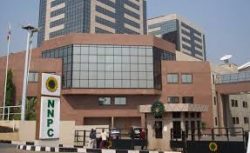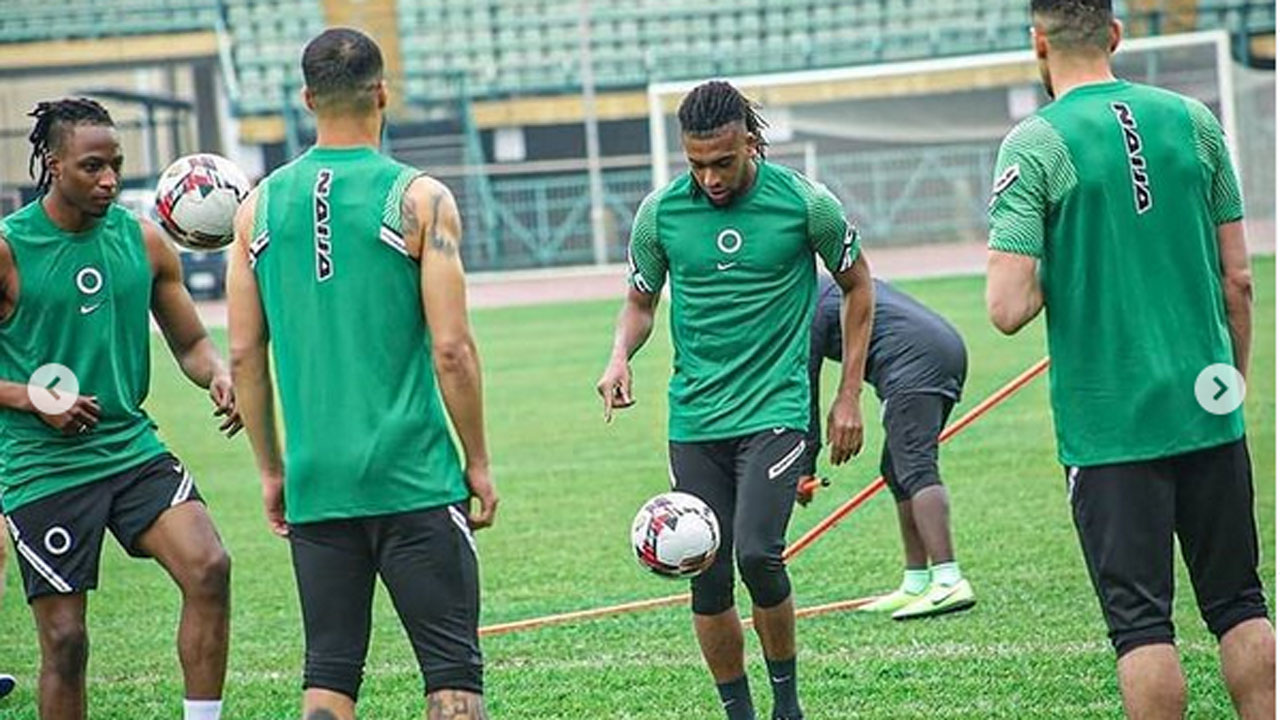By The Strategy Page
October 11, 2017: The government is prosecuting 1,700 people accused of being Boko Haram and committing various crimes in that capacity. The trials ae closed to the public. The closed trials are done mainly for security reasons and are largely held in military bases beginning in mid-October.
The problem is that the military has a bad record when it comes to dealing with captured/arrested/kidnapped civilians. The military has also been one of the most corrupt institutions in government for a long time. Based on that one could expect a lot of innocent people to be convicted and those with enough cash or political connections to be acquitted. In its defense the government points out that thousands of people arrested have already been released because they were indeed innocent. Some who had some association with Boko Haram were also released with a warning because they had not committed any acts of terrorism or similar mayhem..
Boko Haram is still a presence in the northeast and so far this year has been responsible for 50-100 deaths a month (mainly in Nigeria but also in Cameroon and Niger). The trend is towards fewer deaths but the Islamic terror group has adapted to the new situation and appears ready to survive any way it can for as long as it can.
Despite over a year of relative peace in the northeast (mainly Borno state) not a lot of the promised help has reached the areas where it is most needed. For example nearly 60 percent of the schools were destroyed or damaged up there and are still shut down. This is partly due to the fact that more than 2,300 teachers staffing some 3,000 schools in the area were killed and many more fled and have not returned. At least half the three million school-age children in the area still have no access to education. There is little indication that schools will be repaired or rebuilt very quickly either. There are still over two million people living in refugee camps and the conditions there are getting worse. There are a growing number of angry demonstrations by these refugees. At the same time over five million people who returned (or never left) to Borno are going hungry and starvation deaths are an increasing possibility. There is already more disease, especially in the refugee camps where some are suffering from an outbreak of cholera. The worst part of all this is that many farmers in the devastated area are facing the prospect of a fourth year without crops because the seed and other supplies are still not available.
The Cause
The reason for all this lack of progress up north is corruption. The pervasive corruption in the north was one of the primary reasons Boko Haram was formed, gained so many adherents and got radicalized. Many local politicians were willing to work with Boko Haram, up to a point. But the politicians all tend to react violently to groups that threaten their wealth (corrupt practices like stealing any government funds they have access to).
Local corruption is as bad as ever but nationwide there has been some progress exposing the extent that oil income has been stolen and real efforts are being made to halt that and recover some of the lost billions. It has not been easy. But that effort is apparently one reason why the economy is recovering from the sharp, and apparently permanent, fall in oil prices.
Corruption has at least become a major and persistent issue in the media. Beyond that not much has been actually been done other than a few prosecutions (not always successful) of notoriously corrupt former officials (usually former state governors). Corruption is now a news staple and those speaking up no longer have to worry as much about retribution (which was once often fatal). But people notice that the billions of dollars allegedly recovered so far are now showing up in new projects. Lots of plans and promises but not much to show for it so far. Some of this bad news is expected but still disappointing. For example journalists in the Niger Delta can now see coastal tankers still engaged in smuggling pointed out by locals. A little more investigation confirms that these tankers do indeed obtain oil stolen from ruptured pipelines and sold to brokers who pay bribes to allow their tankers to move the oil to neighboring countries where it is sold as legitimate. Revelations like this put officials of the national oil company under more pressure but so far not much to show for it.
Many Nigerians attribute the corruption stalemate to the fact that the major political parties (especially the APC, currently in power) are busy trying to avoid accepting any blame for ignoring the corruption until recently. It has become fashionable to declare corruption allegations an excuse by political rivals to bring down an honest opponent. Popular opinion considers all of them dirty to one degree or another and that the most corrupt should be tended to first. These politicians have the most to lose and have been very effective in hiding behind this “it’s all politics” smokescreen. Corruption is deeply entrenched and difficult to clean up but in a democracy you have to show some tangible progress or get voted out of office by less honest politicians.
Biafra Back From The Dead
The Biafra (Igbo) separatist rebellion in the south is back and is resisting suppression. There have been more than a hundred arrests in the past month related to the demonstrations and other pro-independence activity and that has simply made Igbos angrier. Police are under orders to deal with the protests and unrest carefully and avoid bloodshed. Someone in government apparently remembers that the original 1967 rebellion began because in 1966 over 40,000 Igbo in the north were murdered by Hausa Fulani groups after a much smaller number of Moslems were killed The subsequent Biafra rebellion did not end until 1970 and it more than a million Igbo dead. Yet the Igbo remain a major force in Nigeria, comprising nearly a fifth of the population and dominating even more of the economy. This is particularly resented in the Moslem north, where the Igbo returned in greater numbers since 1970 and are now a key part of the northern economy and, as Christians, a favorite target of Boko Haram.
Partly in response to the Boko Haram violence the Igbo separatist movement was revived 2015 and the government ordered police to crack down. By 2016 nearly 200 Igbo had been killed by police attacks on demonstrators and anyone suspected of separatist activity. The violent response was obviously making it worse.
The pro-Biafra separatists have been around and increasingly active since the 1990s. Back in the 1960s the Igbo (or Ibo) people of southeastern Nigeria considered establishing a separate Igbo state (Biafra). A brutal war followed before the separatist movement was crushed and the Igbo were warned not to try it again. Separatist attitudes were silenced but not extinguished. Pro-Biafra groups began to appear again in the late 1990s, trying to revive the separatist movement. Since then over a thousand separatists have been killed, and many more imprisoned, while the government insists that Biafra is gone forever. But as details of the extent of government corruption during the last few decades came out, Biafra again seemed like something worth fighting for. One of the first things president Buhari addressed when he returned from sick leave in mid-August was the Igbo separatist threat and the hostility that has triggered in the north.
October 8, 2017: In central Nigeria (Plateau State) Moslem Fulani raiders made an overnight attack on a Christian village leaving twenty villagers dead. The government is under growing pressure from the Christian community to recognize the growing (since 2010) threat in central Nigeria (mainly Plateau, Jos, Kaduna, Benue and Nassarawa states) from the Moslem Fulani herders moving south. While these attacks often trigger reprisals by local militias the Fulani keep attacking. Most of the victims of the Fulani violence are Christian. Thus there were over 800 Christians killed in 2016 along with extensive property damage, including 1,422 houses, 16 churches, 19 businesses and one school destroyed. The violence has gotten worse in 2017. State governments often refuse to believe that the Fulani raiders are local (and thus the responsibility of the state government.) Instead the violence is blamed on Fulani from a different state, despite evidence that the Fulani raiders are locals. To make matters worse the raiders have also been attacking soldiers or police who intervene. Attempts to negotiate peace deals with the Fulani generally fail. Tribal violence in this area has been a problem for generations because Moslem and Christian tribes do not get along and, according to many Moslem clerics and religious teachers, never will. The violence has gotten worse lately. There were over a thousand casualties a year since 2013 and as it got worse in 2016 and 2017. The prompted officials from both states to meet with Moslem and Christian tribal leaders to work out a peace deal. That has not worked, at least not yet.
October 7, 2017: In the south (Niger River Delta) the army began three weeks of exercises aimed at testing plans to deal with another outbreak of widespread violence against oil production facilities in the delta. Many locals see these exercises more of an intimidation tactic than a training opportunity. Nevertheless the local tribal and political groups that have supported (or carried out) violence against the oil operations continue to keep the peace and see if the new government will actually clean up corruption and improve life in the delta.
October 4, 2017: In neighboring Niger four American Special Forces soldiers were killed when the training exercise (a large patrol) they were conducting was ambushed. This took place far from any area Boko Haram had been known to operate in and the attackers were believed to be al Qaeda affiliated Islamic terrorists from Mali. Niger still has some problems with Boko Haram groups in the Lake Chad area. That lake is bordered by Niger, Nigeria, Chad and Cameroon. Boko Haram has operated along the shoreline and on island in the lake for years but have not ventured anywhere near where the American troops were conducting training. Meanwhile the parts of Nigeria (northeastern Borno state) that border Lake Chad were always poor and the poverty got worse because of several years of Boko Haram violence.
October 3, 2017: Cameroon been dealing with Boko Haram violence in the north, especially where it border Nigeria’s Borno State. There are still problems up there and Cameroon is forcing Nigerian refugees to return home. The refugee camps were a refuge for some of the Boko Haram operating in Cameroon. Meanwhile in southern Cameroon there are other problems on the Nigerian border, where a separatist movement has turned violent and at least 17 people have been killed over the last few days. The issues are more linguistic than tribal and the separatists are largely English speaking Cameroonians (about 20 percent of the 23 million Cameroonians) who protest the bad treatment they receive from the French speaking majority. The English speakers of southwest Cameroon used to be part of Nigeria but as part of the process by which colonial rule ended in the 1950s some groups on proposed new borders were given an option on which nation to belong to. The Cameroon English speakers thought they would be better off as a linguistic minority in Cameroon but subsequent generations developed different attitudes. Ironically the separatist Cameroonians are adjacent to the separatist Nigerian Igbo areas that want to be a separate state called Biafra. The people in these two separatist areas have a lot in common but operating together to form a single new state has never been a priority.
September 29, 2017: In the northeast (Borno state) troops ambushed a group of Boko Haram killing one of them, wounding several of those who escaped and capturing most of the loot (food, fuel, bicycles) the Islamic terrorists had with them. Elsewhere in the area another group of Boko Haram attacked a checkpoint and were repulsed. A policeman was killed as well as a civilian bystander.
September 26, 2017: In the northeast (Borno state) a female suicide bomber rushed past security and into a mosque where she exploded and killed five worshipers. Soldiers intercepted another female suicide bomber, who blew herself up but caused no other casualties.
September 13, 2017: In the northeast (Borno state) two senior Boko Haram leaders surrendered, along with their families and subsequently spoke freely to interrogators. This led to raids on other Boko Haram camps and the release of dozens of kidnapped civilians and seizure of Boko Haram weapons and equipment.
August 31, 2017: In the northeast (Kano state) Husseini Maitangaran was captured. He was the top Boko Haram commander in Kano and the one planning several major attacks to take place over the next week or so. These attacks were successfully thwarted. The capture of Maitangaran led to the arrest of several other Boko Haram leaders in Kano and apparently did some serious damage to the entire Boko Haram organization in Kano. This effort has been underway since June when state police carried out raids that arrested over 30 suspected Boko Haram members. Several were not suspected but wanted and one of those was a notorious Boko Haram leader who had been active for several years. This investigation also disrupted planned Boko Haram attacks in Kano and other northern states. The raids also found large quantities of weapons, explosives and Boko Haram literature and documents. Kano was not hit as hard by Boko Haram violence as Borno state to the east, but many Boko Haram fled Borno over the last year and established themselves in Kano.
EDITOR’S NOTE
The StrategyPage is a US based medium that provides quick, easy access to what is going on in military affairs. It covers armed forces world wide, as well as up to date reporting on wars and hotspots wherever they may be.
























Leave a comment